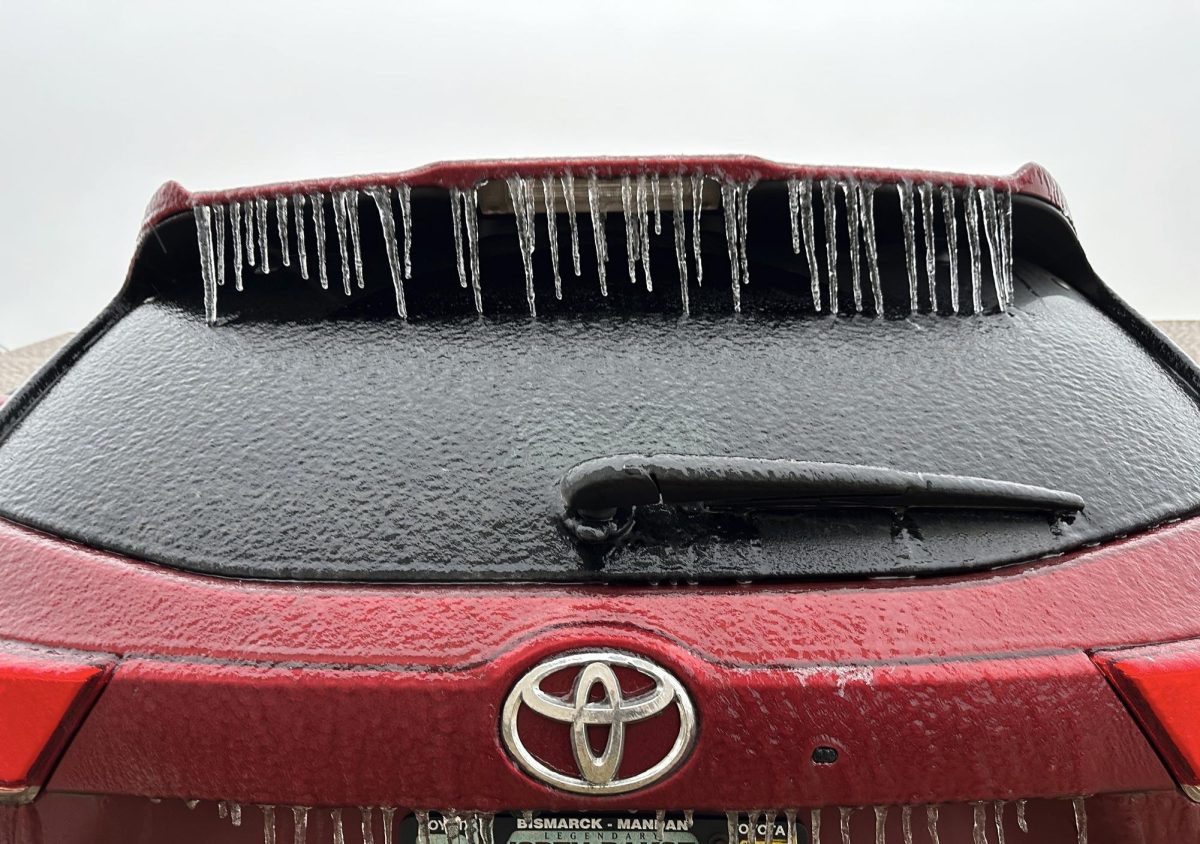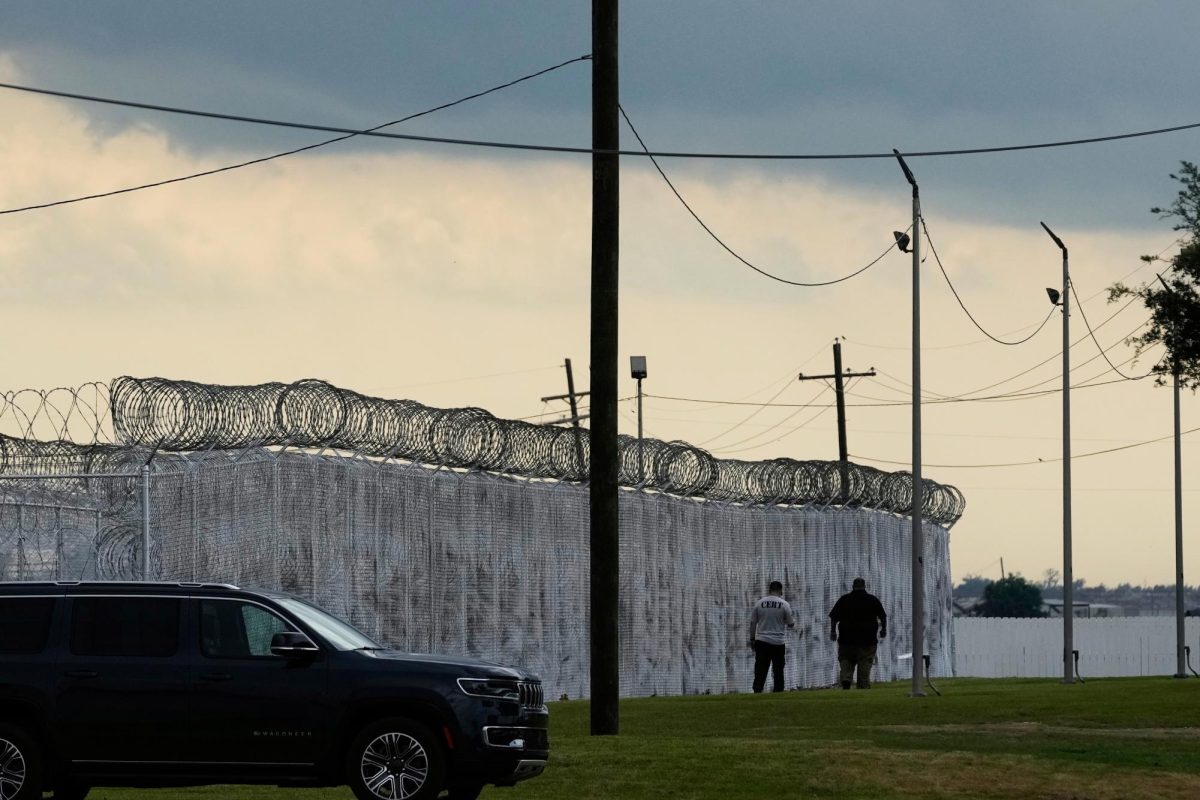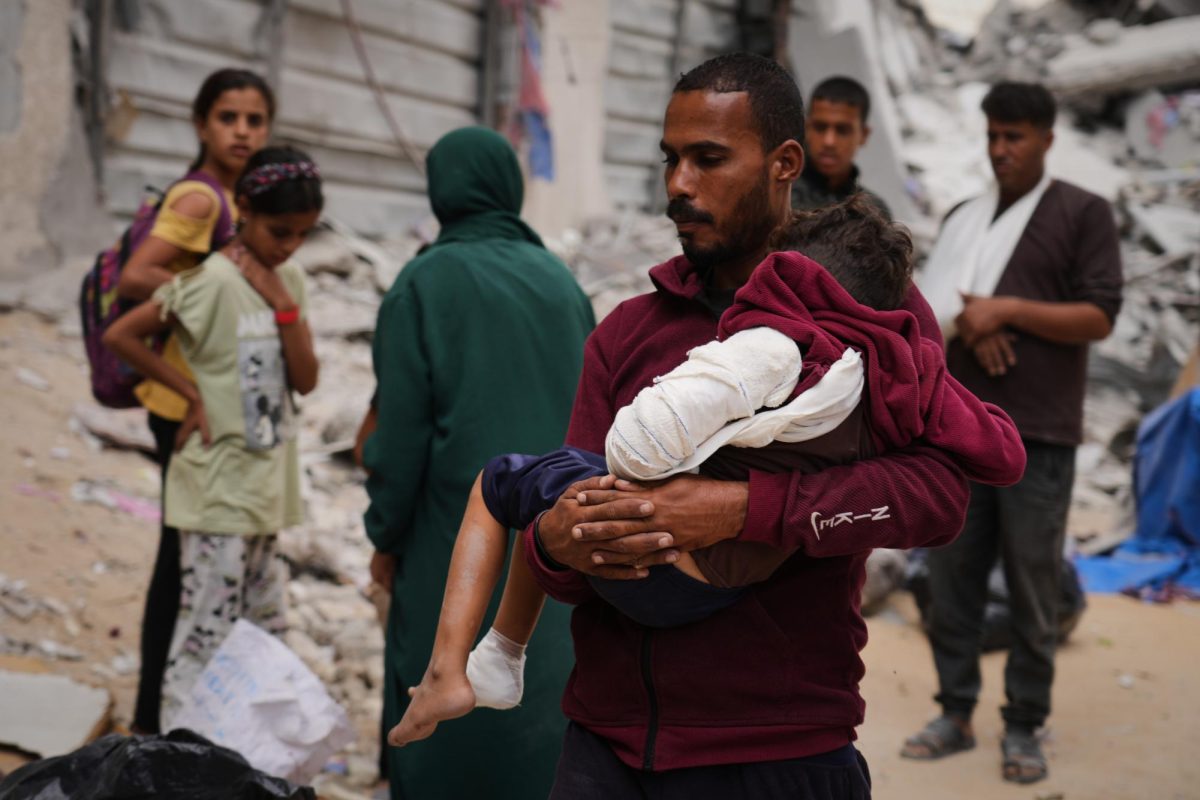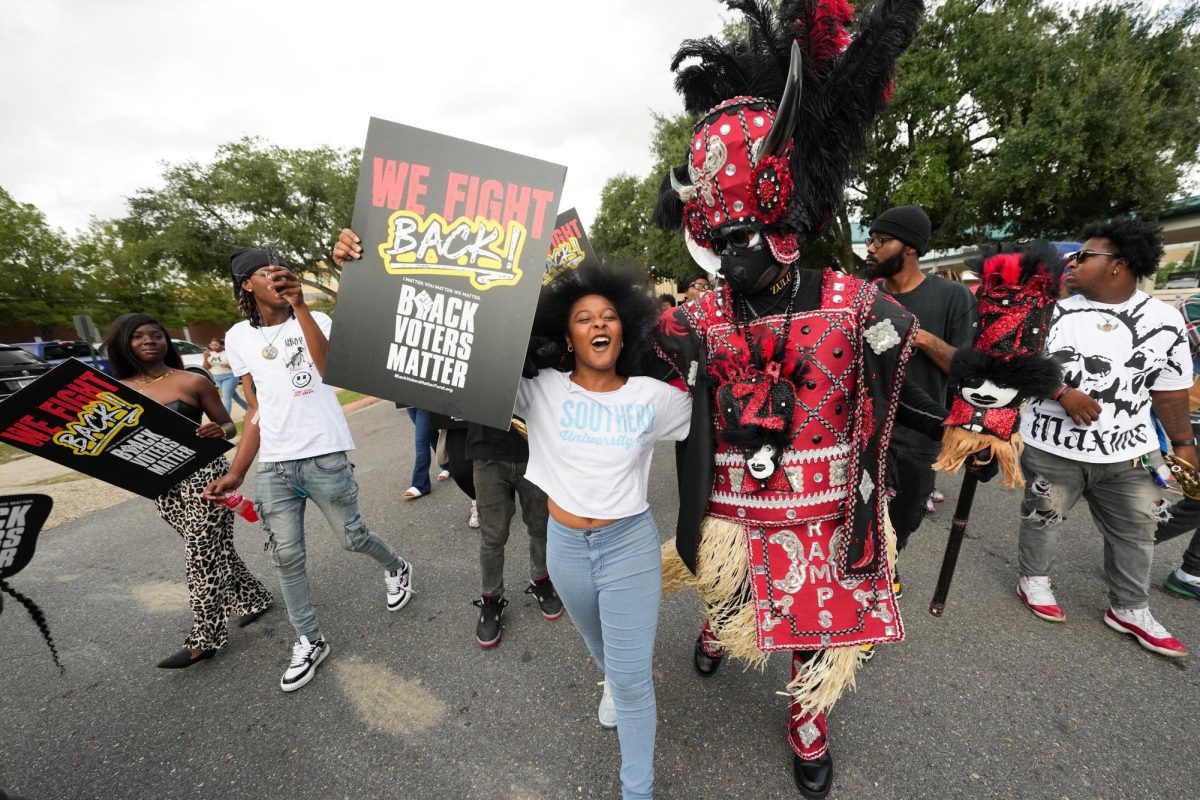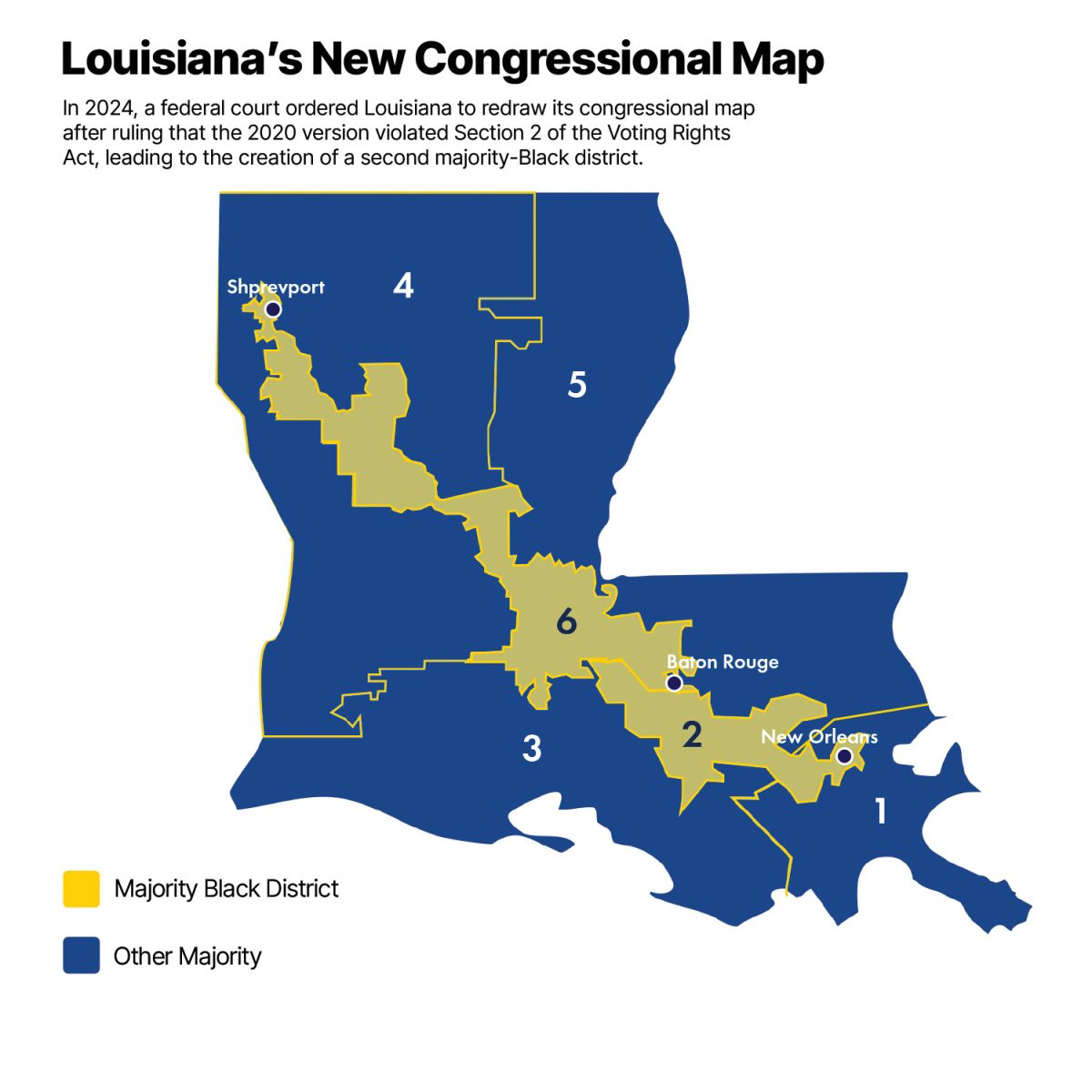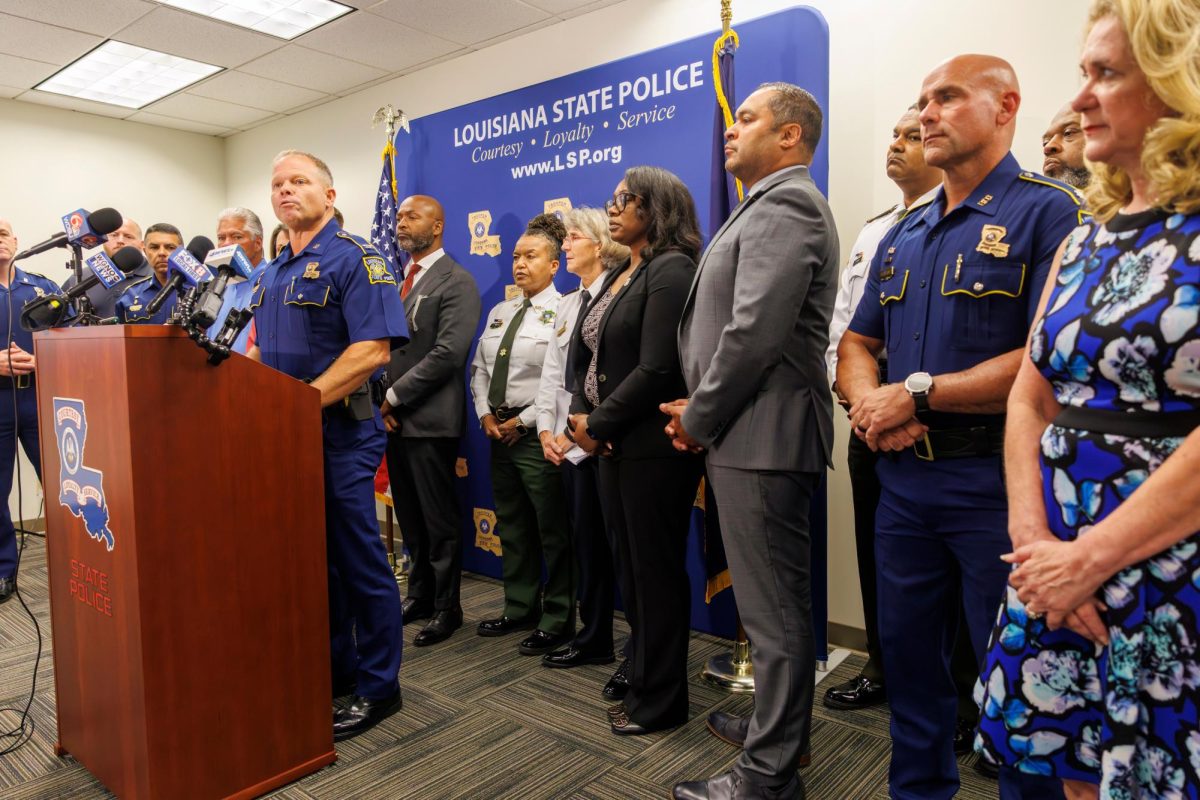After dealing with record-breaking hot temperatures last year, 2024 is starting off weird, weather wise. The temperature started to drop in December, and it has been going up and down.
The entire world is being affected by extreme temperatures.
When it comes to the winter season, Louisiana is usually in the 50s-60s with occasional freezes and snow.
This winter, the state dealt with temperatures in the low 40s to 20s and thunderstorms.
“Being from Mississippi, I have never truly experienced weather like this. I was not prepared. I did not have the right clothes and was unprepared for the wind, extreme cold rain, and cooler temperatures,” environmental studies sophomore Katie Buc said.
Usually, air in the arctic is stuck in a portal vortex, which is a large, swirling mass of cold air that is typically situated near the poles.
But if the vortex gets obstructed, the jet stream becomes rippled and carries cold air farther south, which brings snow/ice or dry, harsh cold.
According to Judah Cohen, climate scientist at Verisk Atmospheric and Environmental Research, the vortex “wakes up” around January.
But as February ends, that intense chill lingers.
Global ecology professor Paul Barnes said it appears that extreme weather events, such as these cold spells, are increasing in frequency and magnitude due to climate change and the expectation that extreme events will increase as climate change continues.
Climate change refers to the long-term changes in global or regional climate patterns, such as increased permafrost thawing or rising sea levels.
The portal vortex, which is surrounded by a polar jet stream, causes changes to the climate in the Arctic, such as warming temperatures.
These temperatures have the potential to affect the vortex’s stability. This instability is one possible cause for arctic blasts.
Arctic blasts occur when cold air from the poles pushes rapidly south, extending far beyond their usual reach, Buc said.
Two arctic blasts have already hit America. And more storms are predicted to come to western America.
This winter has seen people die of extreme temperatures, tens of thousands left without power over the winter, and parts of the country have seen deep snow packs.
Buc said that while some climate scientists have sought to establish links between specific weather events, such as arctic blasts and climate change, she finds the relationship to be more complex.
Once climate events are set in motion, rectifying them becomes challenging because they have been developing in our atmosphere for decades now, she said.
“The only viable option today to stop or slow global warming is to dramatically reduce greenhouse gas emissions,’ Barnes said. “While some progress is being made on this, it isn’t enough or fast enough to mitigate climate change. So, we can probably expect to see more of these kinds of extreme events for the foreseeable future.”
Buc thinks our focus now should shift towards preparations for such situations and concerted efforts to shield future generations from experiencing more severe events.


